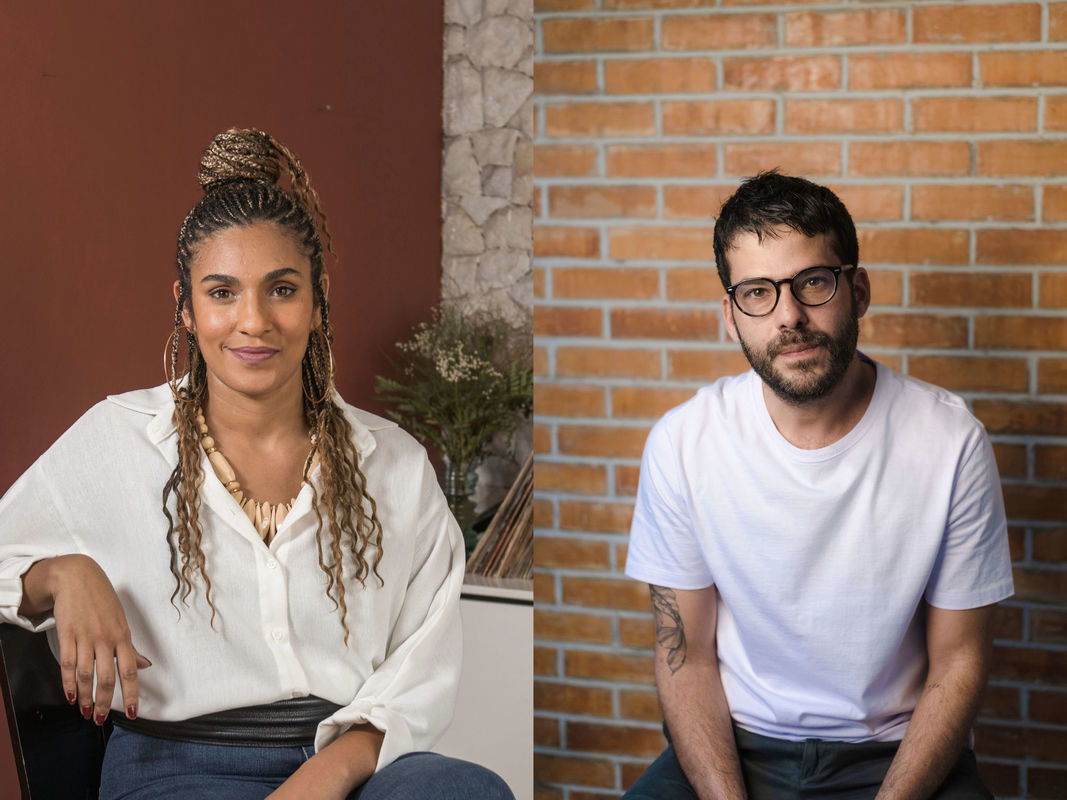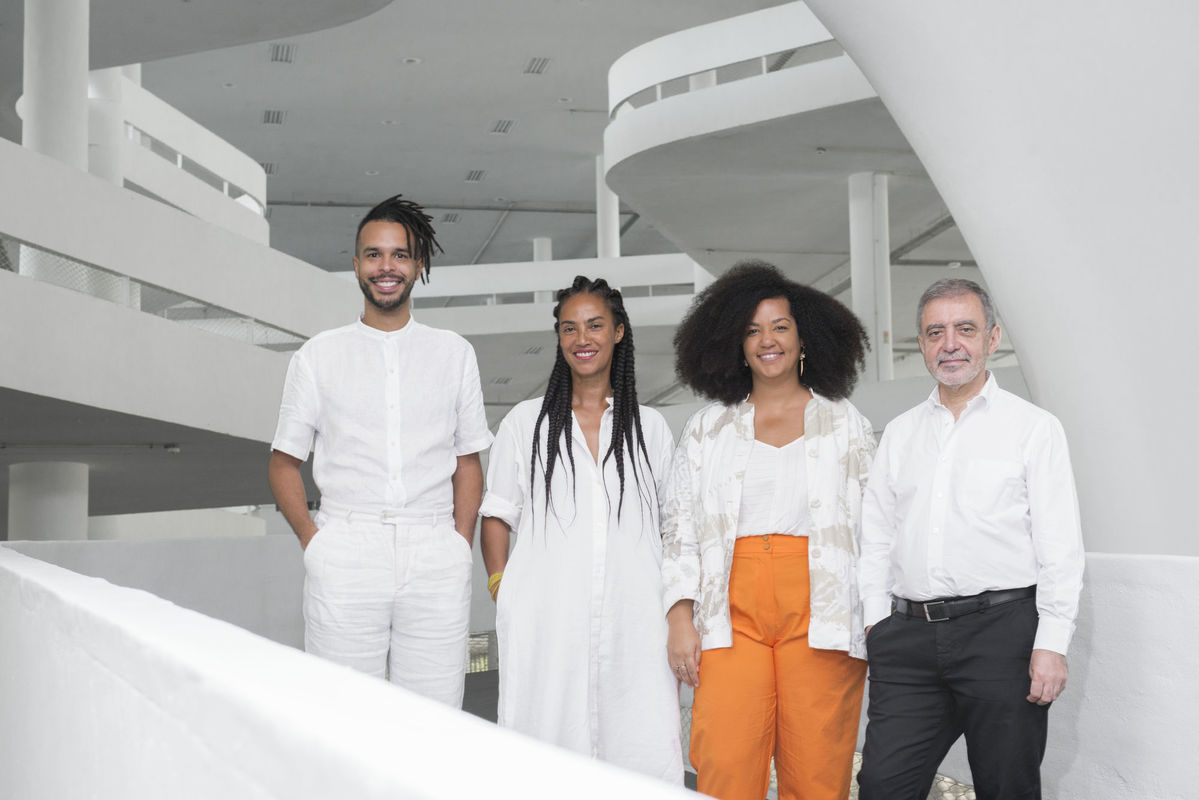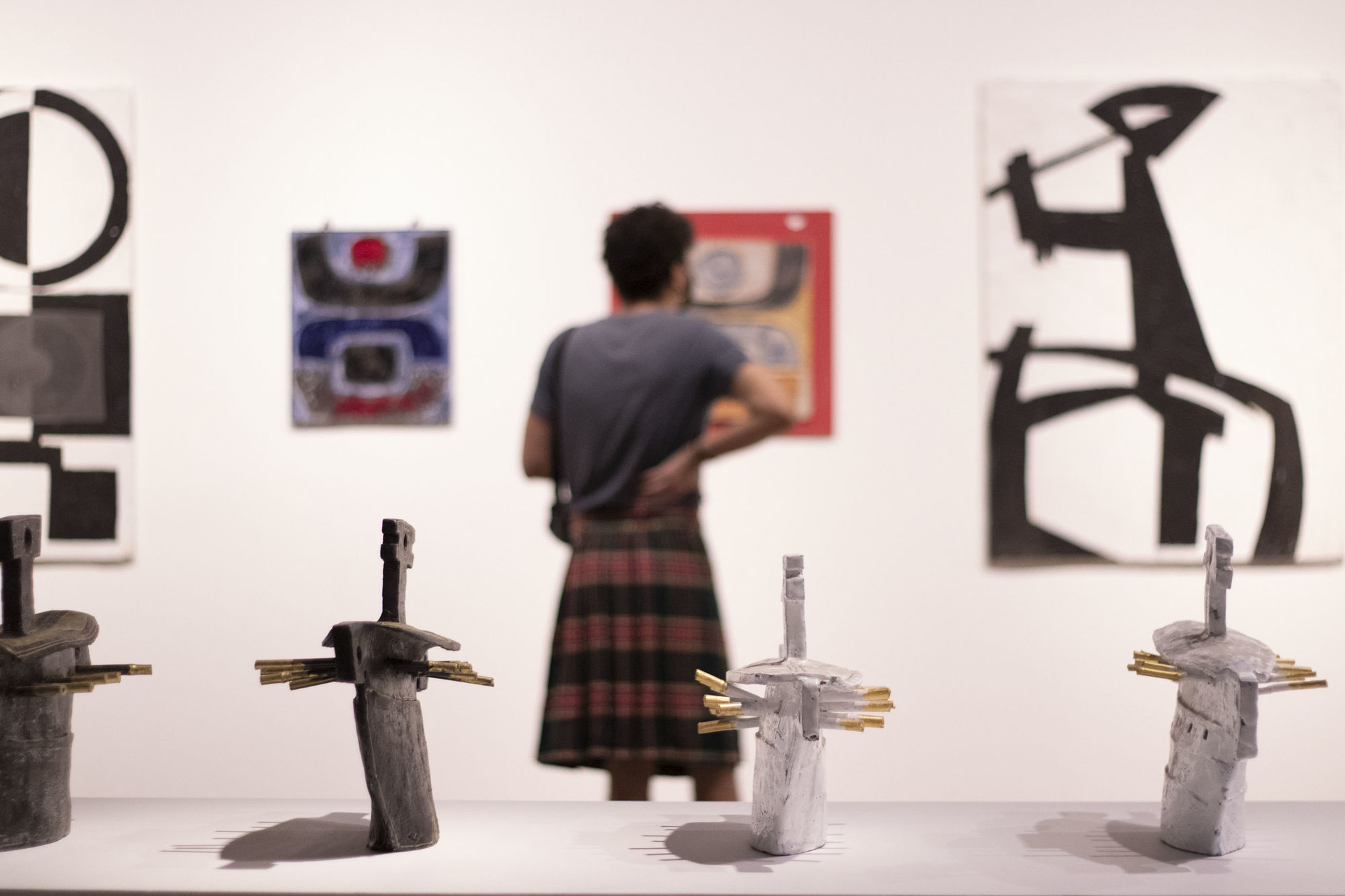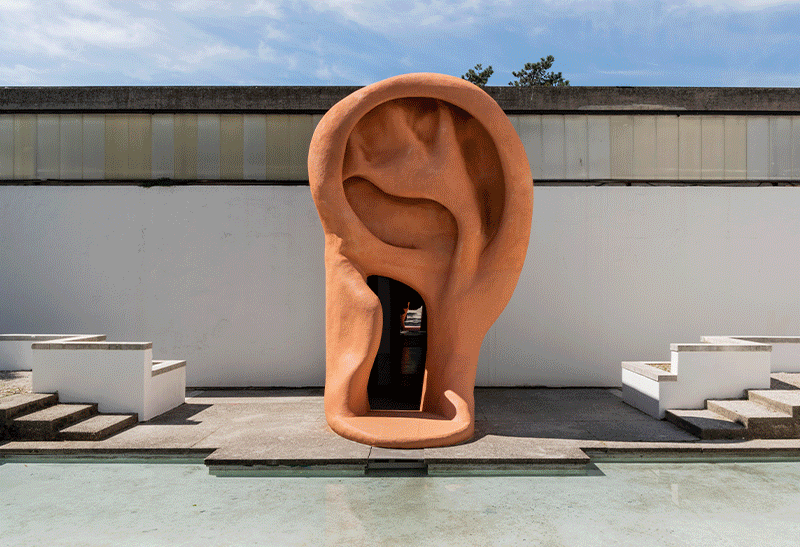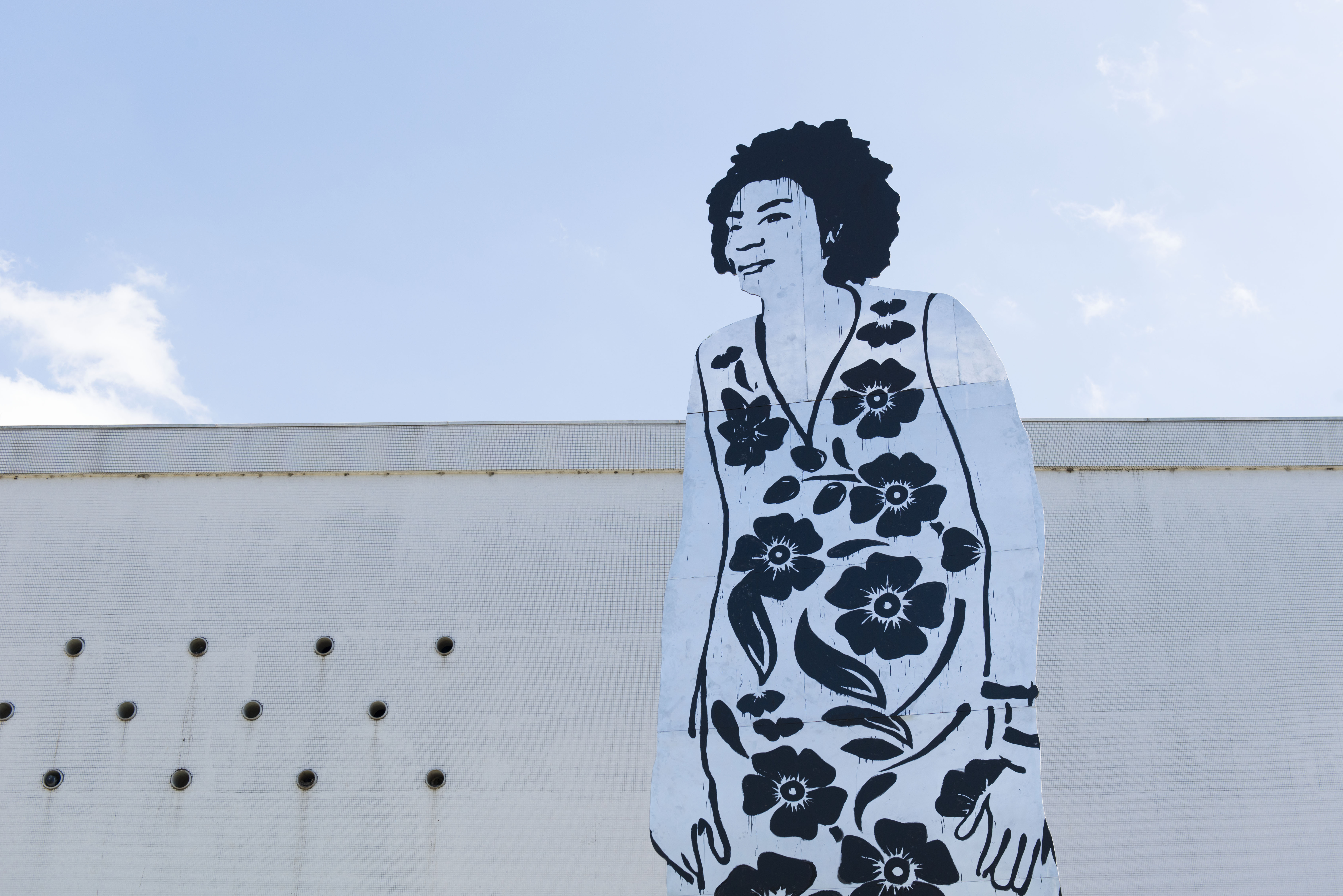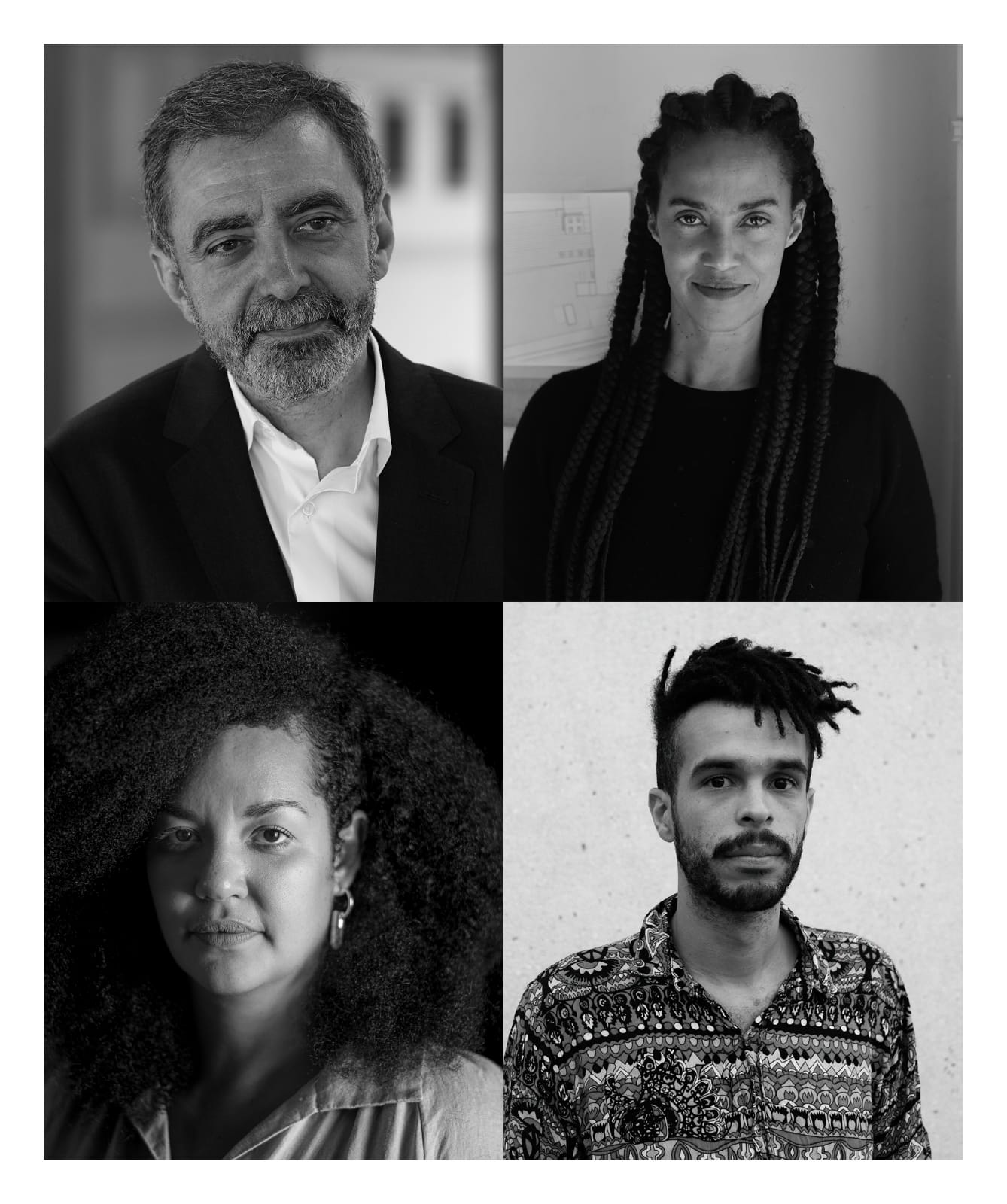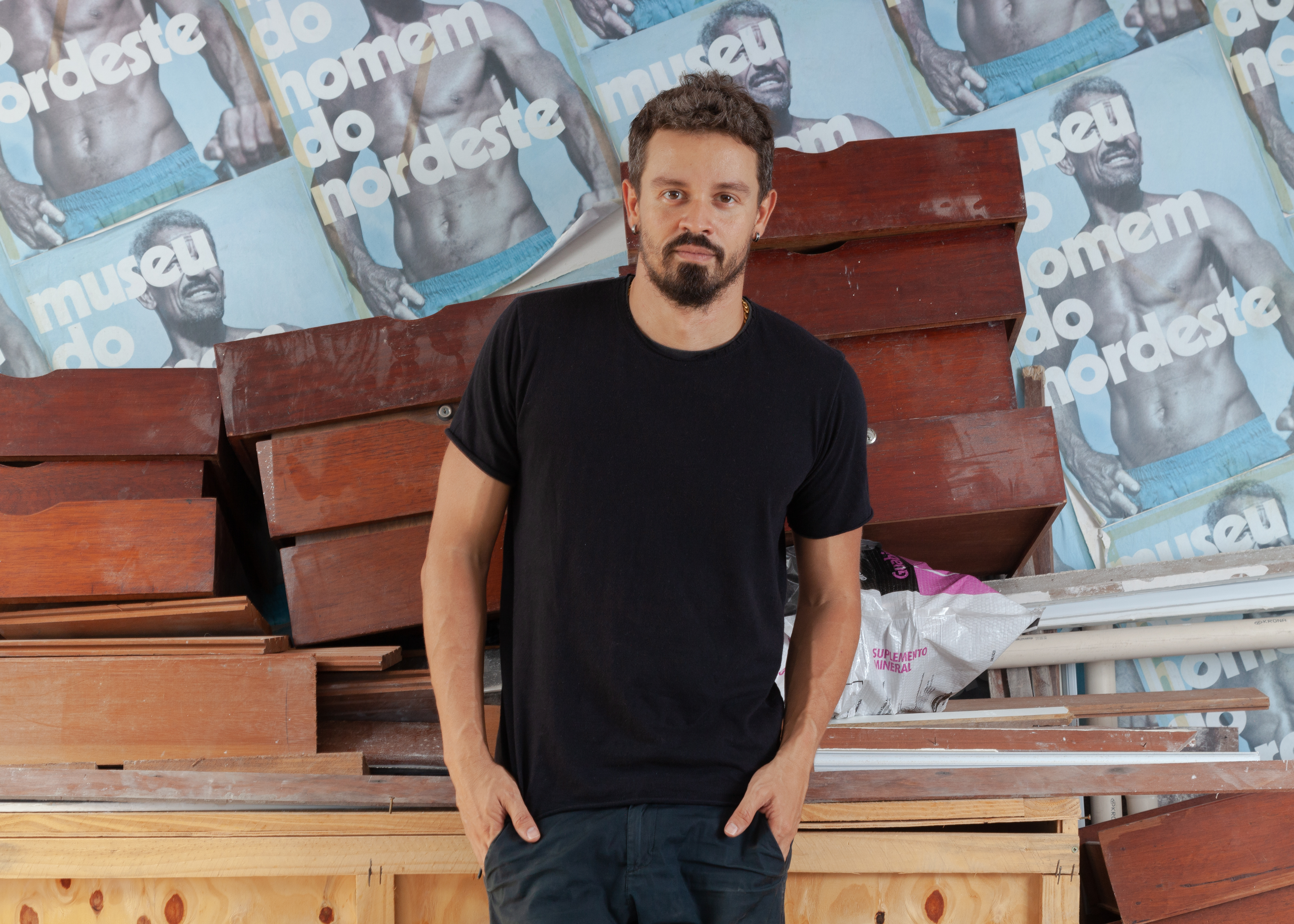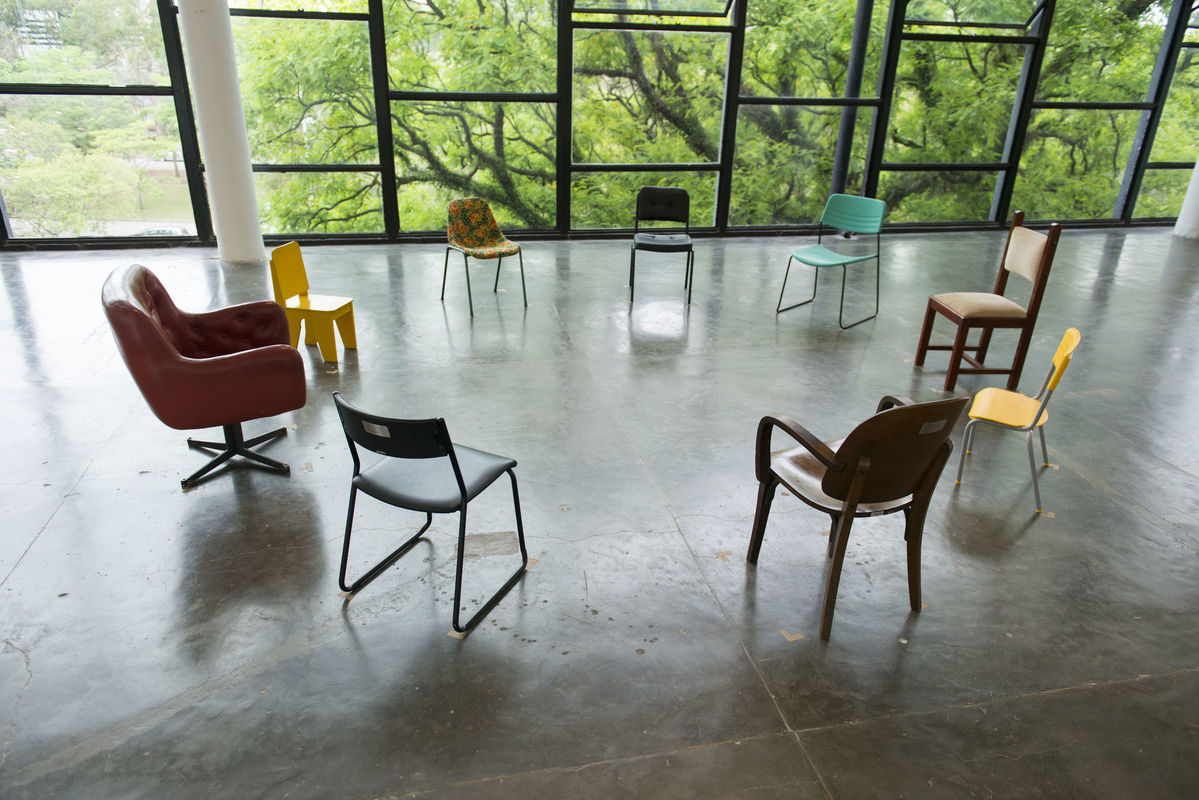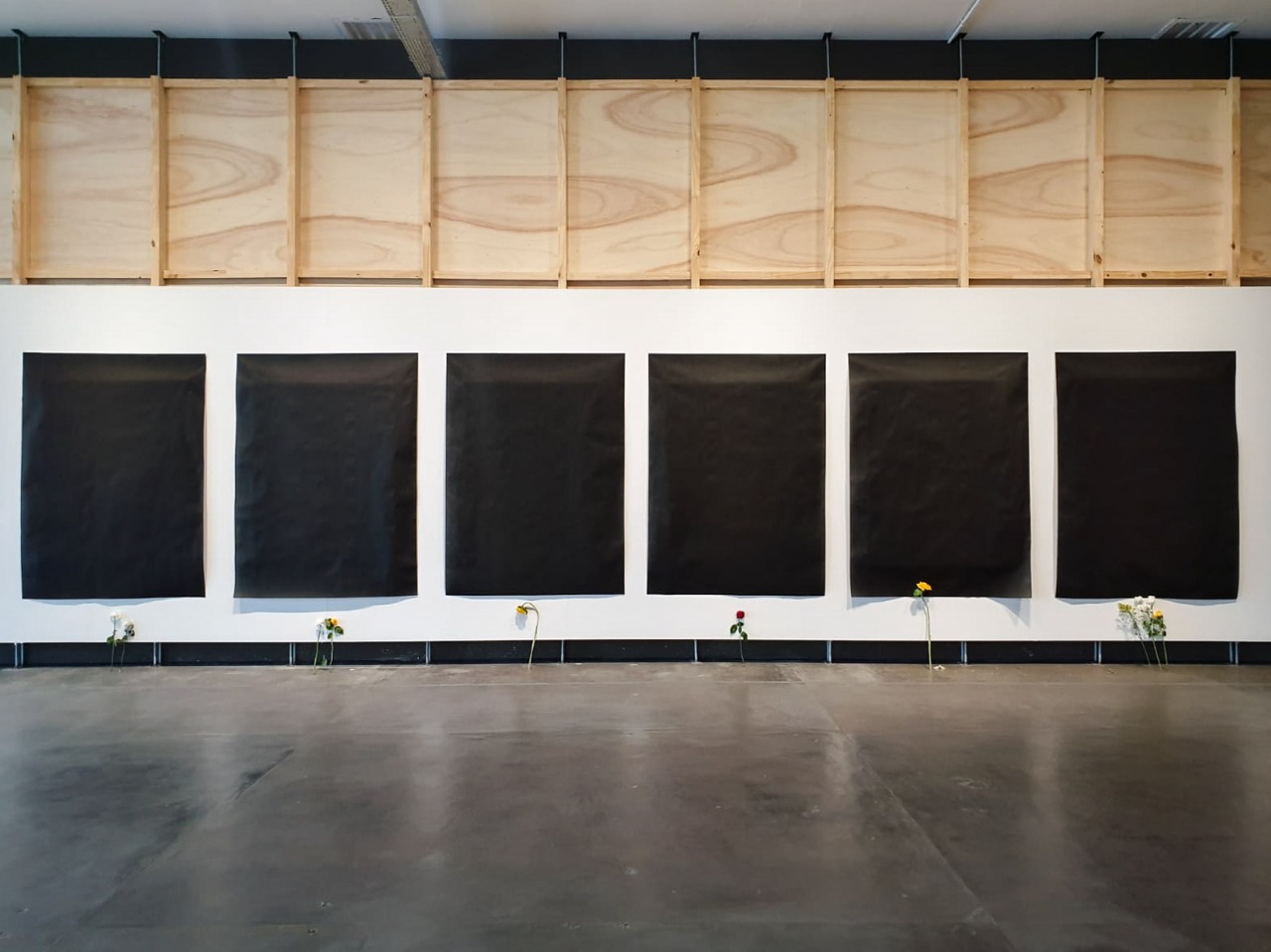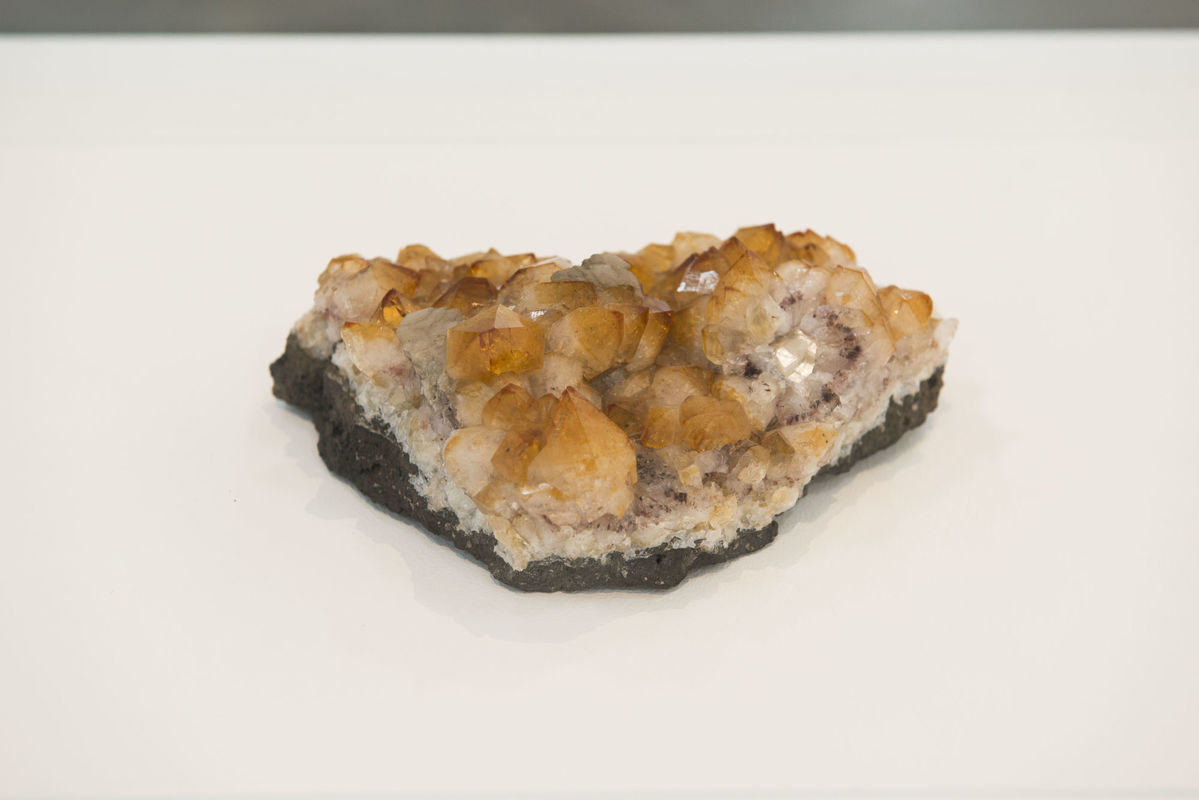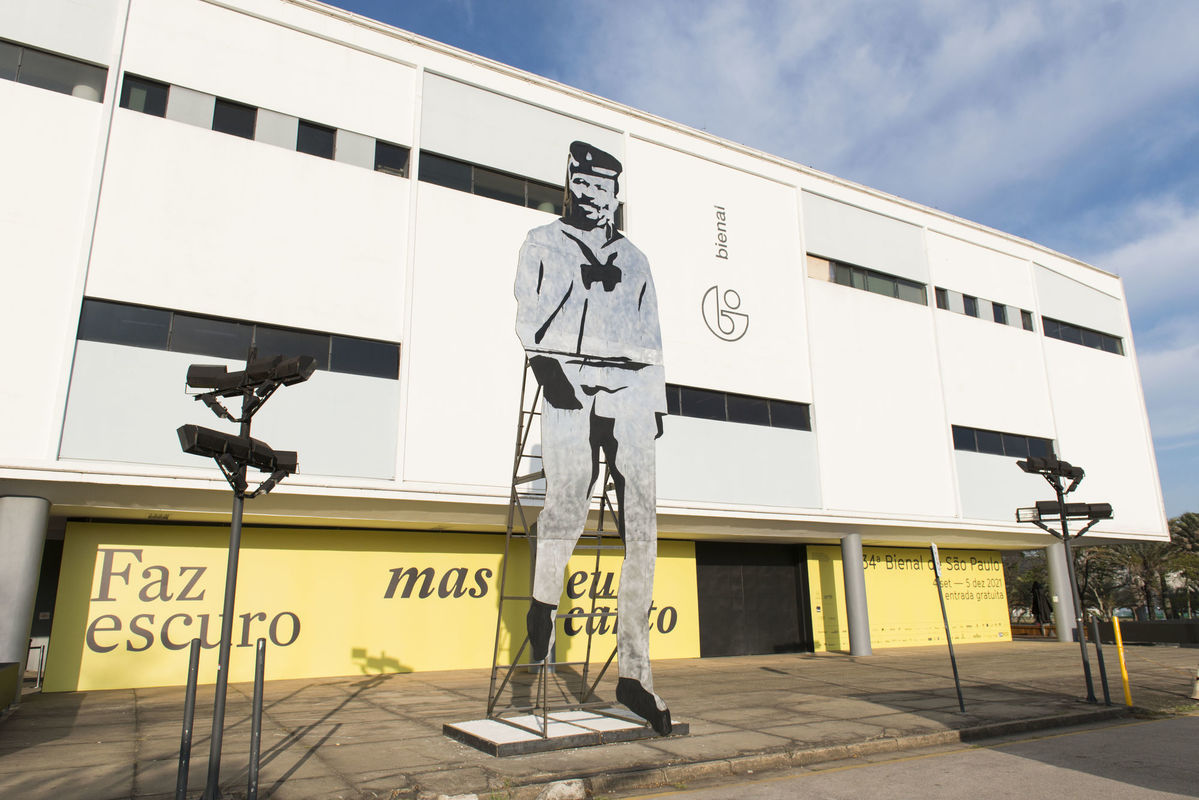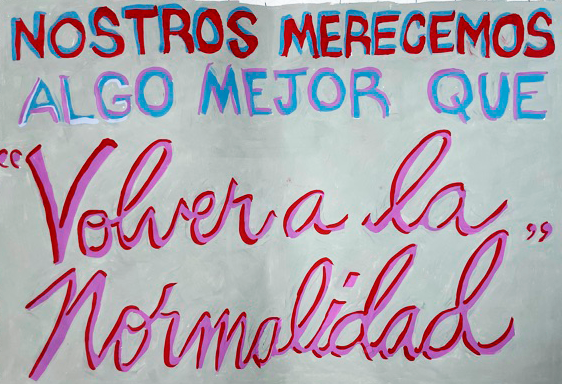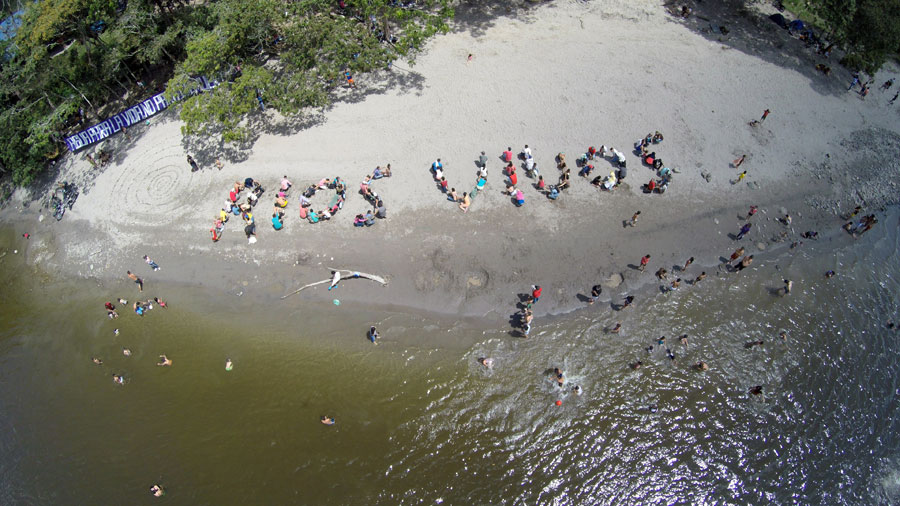
As part of the research preceding the 32nd Bienal de São Paulo, a series of five Study Days help guide the artistic and curatorial processes. Between March and May of 2016, artists, curators, community leaders, anthropologists, activists, scientists and researchers gathered at seminars and workshops in the cities of Santiago (Chile), Accra (Ghana), Lamas (Peru) and Cuiabá (Brazil), expanding the Bienal's project beyond its traditional temporal and territorial borders.
On June 10 and 11, 2016, the Fundação Bienal auditorium in São Paulo will host the fifth and final of the Study Days. Connecting with the previous debates, the meeting seeks to foment critical thought in the context of the city and its public. “In addition to reflexively echoing the experiences of the Study Days, we intend here to consider the proposals that shape the Bienal and the concepts that frame it and to create a nurturing environment for dialogue and questioning,” explains curator Jochen Volz.
The event will feature three roundtables, bringing together indigenous leaders, anthropologists, artists, architects, political scientists, activists, curators and historians for a debate about ecologies of knowledge, forms of construction and the expanded practices of art and activism. In parallel, Bárbara Wagner and Vivian Caccuri, participating artists in the 32nd Bienal, will present an introduction to the study for their projects for the exhibition in the form of an intervention.
Agenda
Friday, June 10
7.30 pm | Cosmovisions: nature and politics
Roundtable featuring Ailton Krenak, Carolina Caycedo, Ana Laíde Barbosa and Luisa Elvira Belaunde
Moderation: Pedro Cesarino
Saturday, June 11
10 am | Intervention: Vivian Caccuri
+ Construction, space, knowledge
Roundtable featuring Alvaro Puntoni, Áurea Carolina, Joe Addo, Laís Myrrha and Paulo Mendes da Rocha
Moderation: Ligia Nobre
3 pm | Intervention: Bárbara Wagner
+ Expanded practice: art and activism
Roundtable featuring Amilcar Packer, Ben Vickers, Guilherme Boulos and Naine Terena
Moderator: André Mesquita
Participants
Ailton Krenak (Lives in Serra do Cipó)
A member of the Krenaque people, Krenak is a Brazilian indigenous leader, environmentalist and writer. He was born in 1953 in the Médio Rio Doce region of the state of Minas Gerais. In 1985, he founded the non-governmental organization Nucleus of Indigenous Culture whose mission is to promote indigenous culture in the Serra do Cipó region. Ailton participated in the National Constituent Assembly, the foundation of the Union of Indigenous Nations and the Alliance of the Peoples of the Forest and currently works at the Nucleus of Indigenous Culture.
Alvaro Puntoni (Lives in São Paulo)
An architect with a B.A., Master's degree and doctorate from the University of São Paulo College of Architecture (FAU-USP), Puntoni currently works as professor for projects at FAU-USP and Escola da Cidade, which he cofounded and where he works as Coordinator of the Pedagogical Council. He participated as exhibitor at “Encore Modern? Architectures brésiliennes 1928-2005” [“Still Modern? Brazilian Architecture 1928-2005”] (Paris) and “Coletivo – Arquitetura Paulista Contemporânea” [“Collective – Contemporary São Paulo Architecture”] (São Paulo, Rio de Janeiro, Zürich and Lisbon). Puntoni currently runs the firm Grupo SP, a flexible organization which fosters collaborations and partnerships based on the work to be developed.
Amilcar Packer (Lives in São Paulo)
Holding a degree in Philosophy from Pontifical Catholic University of São Paulo, Packer develops practices that reconfigure the semantical realm of objects, architecture and the human body, as well as traditions of thought and imagination. He is participating in the 32nd Bienal de São Paulo as the organizer for the Workshop of Public Imagination.
Ana Laíde Barbosa (Lives in Belém)
Raised by a community of fishermen and farmers in Santo Antônio do Tuaá/PA Barbosa is recognized as a popular teacher due to her work with fishermen communities, rural workers and indigenous in the North, Northeast and western regions of Pará. She worked for the Fishermen Pastoral Council from 1990 until 2007, graduated with professional mastership on Religious Education by the Arquidiocese of Belém and completed the course on Ethnodevelopment at UFPA/2016. She participated in movementes such as CEBs (Eclesial Community Basis) and Theology of Libertation, MPA (Movement of Small scale farmers) and recently works with the Xingu Vivo Para Sempre and the Iperegayu dos Munduruku movement.
André Mesquita (Lives in São Paulo)
Holding a doctorate in Social History from the University of São Paulo, Mesquita is the author of "Insurgências Poéticas: Arte Ativista e Ação Coletiva" [“Poetic Insurgencies: Activist Art and Collective Action”] (2011), "Esperar não é saber: arte entre o silêncio e a evidência" [“Waiting is not knowing: art between silence and evidence”] (2015) and co-author of "Desinventario. Esquirlas de Tucumán Arde en el Archivo de Graciela Carnevale" [“Un-inventory. Splinters of Tucumán Arde in the Archives of Graciela Carnevale”] (2015). Political activism, collective artistic practices, social movements, urban intervention, critical cartography andcreative practices which focus on the period of military dictatorships in Latin America are among the themes of his research.
Áurea Carolina (Lives in Belo Horizonte)
A political scientist and participant in the movement known as "Muitas pela Cidade que Queremos" [literally “Many for the City That We Want”], which has constructed proposals for the radicalization of democracy and citizen candidacies to dispute elections in Belo Horizonte. Carolina is a feminist and a popular educator with extensive experience in the struggle for juvenile rights, especially in the fight against the genocide of black youth. She was undersecretary of Women's Policy in Minas Gerais. She holds a degree in Social Sciences and a Master's degree in Political Science from the Federal University of Minas Gerais. She holds a specialization in Gender and Equality from the Autonomous University of Barcelona. She acted as institutional articulator for the Community Image Association and took part in the Fórum Cone Sul de Mulheres Jovens Políticas [“Southern Cone Forum of Young Women Politicians”]. Carolina was a rapper, activist for Coletivo Hip Hop Chama and executive secretary of the Municipal Youth Council of Belo Horizonte.
Barbara Wagner (Lives in Recife)
Journalist and photographer, Wagner develops a documental art-research and practice devoted to the representation of the “popular body” and it strategies of subversion and visibility, working between pop culture and tradition. She holds a master in Visual Arts from the Dutch Art Institute (2011) and her work was published in “O que é bonito é pra se ver” (Het Domein). She also participated in the 33rd Panorama de Arte Brasileira (Museum of Modern Art - São Paulo), in the 5th edition of CNI Sesi Senai Marcantonio Vilaça prize and was the winner of 3rd ZUM/IMS photography scholarship.
Ben Vickers (Lives in London)
Curator, writer, explorer, technologist and luddite, Vickers currently works as digital curator of the Serpentine Galleries, co-director of ‘LIMAZULU Project Space,’ partner in ‘Near Now’ and facilitator in the open-source development of the ‘unMonastery’, a new social space of civil engagement based on monastic principles.
Carolina Caycedo (Lives in La Jagua, Colombia and Los Angeles, California, USA)
Carolina Caycedo is a visual artist who is participating in the 32nd Bienal de São Paulo with a research project exploring such concepts as the Flow and Containment of rivers, with a specific focus on the relationships between riverside communities and the threat of the construction of large hydroelectric plants and their mechanisms for social control. Her work takes place in the social sphere, where she is active in movements of economic solidarity and territorial resistance. She participated in the Study Days for the 32nd Bienal in Cuiabá.
Guilherme Boulos (Lives in São Paulo)
Political and social activist, professor and psychoanalyst, Boulous holds a degree in philosophy from the University of São Paulo. Since 2002, he has been a member of the national coordination of the MTST – the Homeless Workers' Movement and the Urban Resistance Front. Boulos began his political militancy at age 16 as part of the student movement.
Joe Addo (Lives in Accra, Ghana)
Addo currently runs Constructs LLC, a firm that combines architecture, urban planning, landscaping and constructive technologies to create “inno-native” design solutions utilizing traditional organic materials in contemporary African architecture.
Lais Myrrha (Lives in São Paulo)
A visual artist invited to participate in the 32nd Bienal de São Paulo, Myrrha is exploring methods of civil construction and indigenous construction in her project. Holding a Master's degree and currently working towards her doctorate at the Federal University of Minas Gerais School of Fine Arts, Myrrha participated in the 8th Mercosul Biennial in Porto Alegre, and held the solo exhibitions ‘Zona de Instabilidade’ [“Zone of Instability”] at CAIXA Cultural São Paulo and Brasília, ‘Projeto Gameleira 1971’ [“Project Gameleira 1971”] at Pivô, ‘Ensaio de Orquestra’ [“Orchestra Rehearsal”] at Coletor in São Paulo and 'Blind Field' at the Karnnet Museum in Illinois, USA.
Ligia Nobre (Lives in São Paulo)
Nobre holds a B.A. In architecture from the Mackenzie College of Architecture and Urban Planning and a Master's degree in Theory and History of Architecture and Urban Planning from the Architectural Association School of Architecture in London. Currently working towards her doctorate in the Inter-unitary Program of Aesthetics and Art History at the University of São Paulo, she co-directed the non-profit platform exo experimental org. and was associate curator for the 10th Bienal of Architecture de São Paulo. Nobre currently works as a teacher at Escola da Cidade and is a member of O grupo inteiro.
Luisa Elvira Belaunde (Lives in Rio de Janeiro)
A social scientist, she currently works as an associate professor at the Post-Graduate Program of Social Anthropology at the National Museum of the Federal University of Rio de Janeiro. She participated in the Study Days for the 32 nd Bienal in Lamas in the Peruvian Amazon. Belaunde holds a B.A. in philosophy and a Master's degree in sociology and anthropology from the Université Catholique de Louvain in Belgium and a PhD in anthropology from the London School of Economics.
Naine Terena (Lives in Cuiabá)
Terena holds a PhD in education from Lêtece – Federal University of Mato Grosso, a doctorate in education from Pontifical Catholic University of São Paulo, a Master's degree in arts from the University of Brasília and a degree in Broadcasting from the Federal University of Mato Grosso. She lectures in the areas of Social Communication and Indigenous Education. Terena received a Postdoctoral fellowship in education (July 2015) no Lêtece - UFMT and currently lectures at Labtec/ Federal University of Mato Grosso and Oráculo Comunicação, education and culture. She participated in the Study Days for the 32nd Bienal in Cuiabá.
Paulo Mendes da Rocha (Lives in São Paulo)
Awarded with a Pritzker Prize (2006) and the Golden Lyon of the Venice Biennale (2016), Mendes da Rocha is one of the key figures of the Escola Paulista da Arquitetura. He graduated in architecture from the Mackenzie College of Architecture (1954) and lectured at Faculdade de Arquitetura e Urbanismo of the Universidade São Paulo (FAU-USP) until 1999. He signs the project for the Museu Brasileiro da Escultura-MUBE, the Pinacoteca do Estado renovation among many others. Currently he is involved with the activation and replanning for one of Parque Ibirapuera’s main entrances.
Pedro Cesarino (Lives in São Paulo)
Cesarino holds a B.A. in philosophy from the University of São Paulo and a Master's degree and doctorate in social anthropology from the National Museum/Federal University of Rio de Janeiro. He develops studies in indigenous ethnology with an emphasis on research on shamanism, cosmology, oral traditions and the anthropology of art. He currently works as a professor at the department of anthropology at the University of São Paulo in the research area of Anthropology of Expressive Forms. Cesarino participated in the Study Days for the 32nd Bienal in Cuiabá.
Vivian Caccuri (Lives in Rio de Janeiro)
A multimedia artist, she holds a degree in Visual Arts and Sound Studies. Caccuri is participating in the 32nd Bienal de São Paulo with a project developed during the Study Days in Accra, Ghana. She studied Music & Technology at Princeton University, where she wrote the book “Music is What I Make.” Her sound works have been broadcast on such radio stations as Resonance FM (London), Kunstradio (Vienna) and Rádio Mirabilis (Rio de Janeiro).
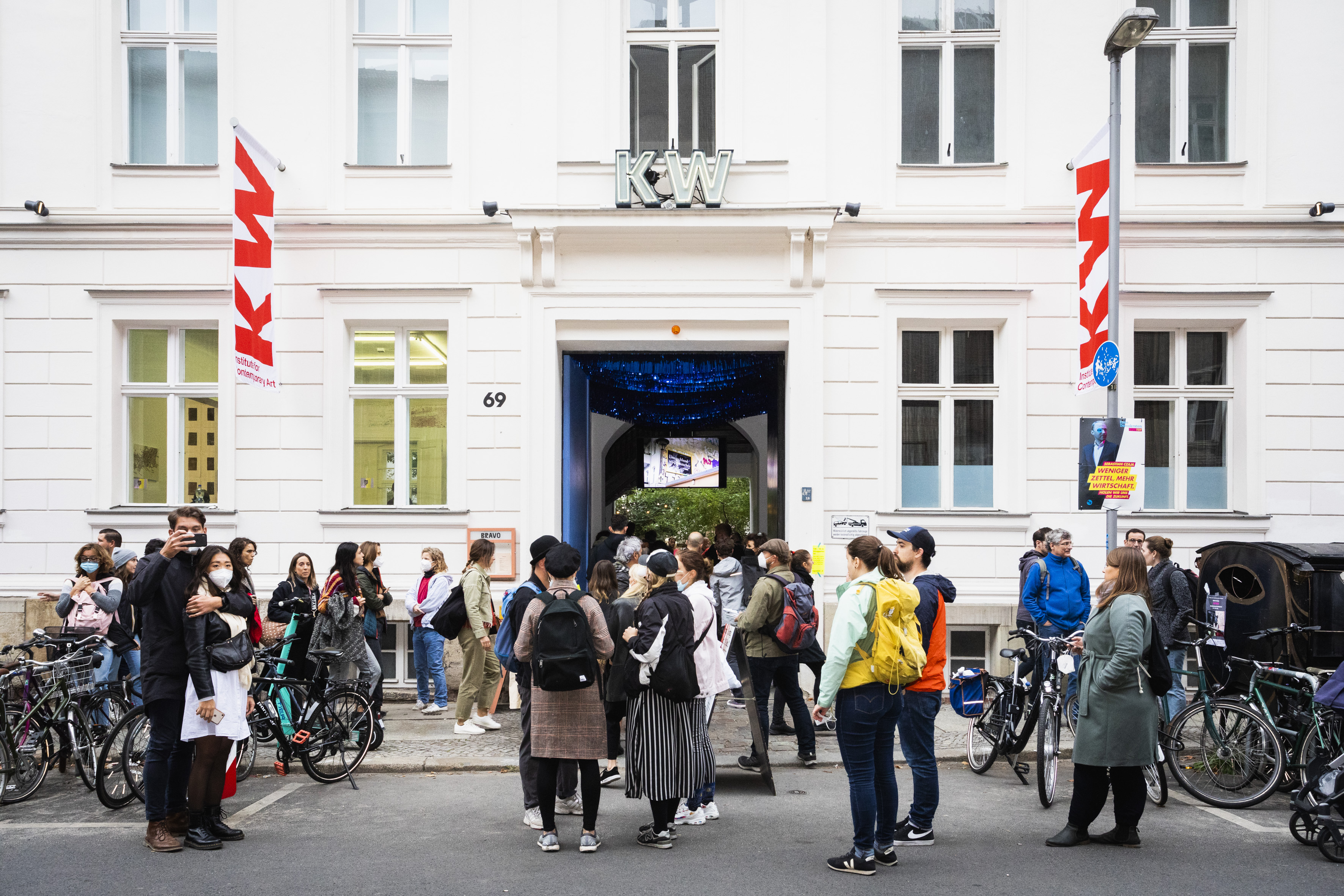
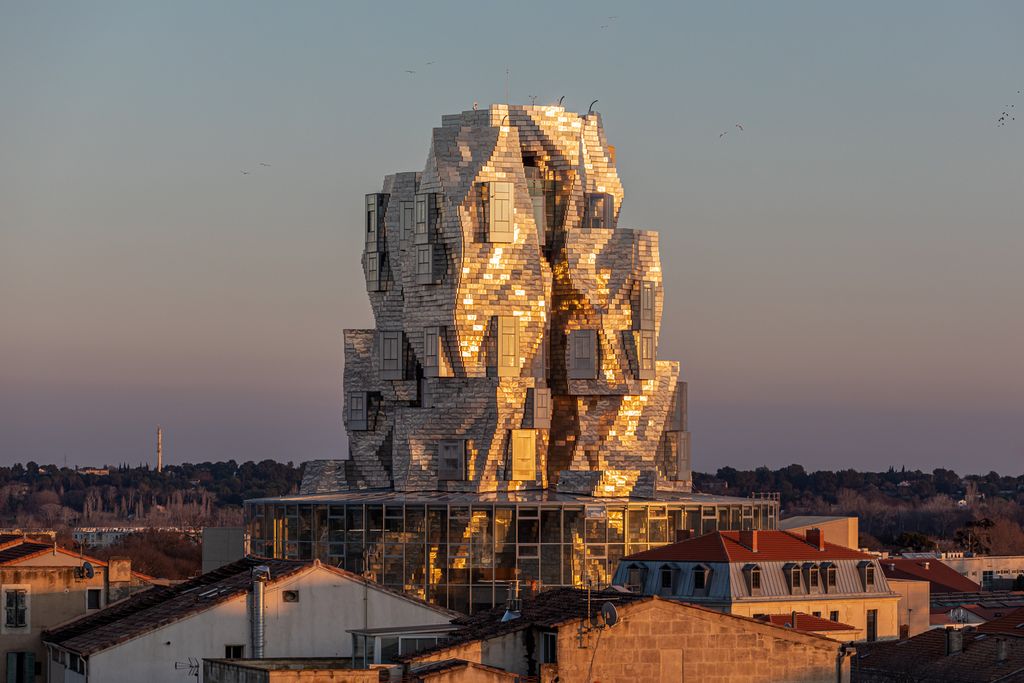
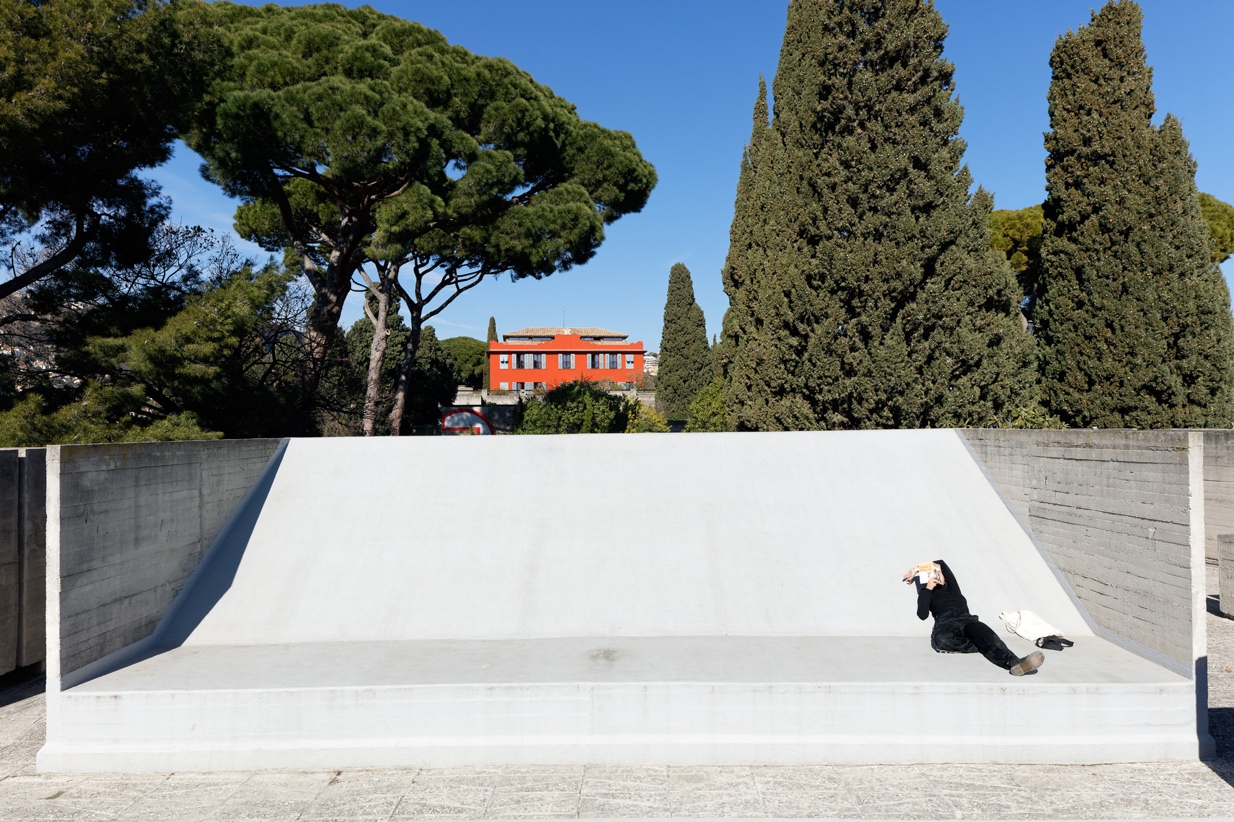
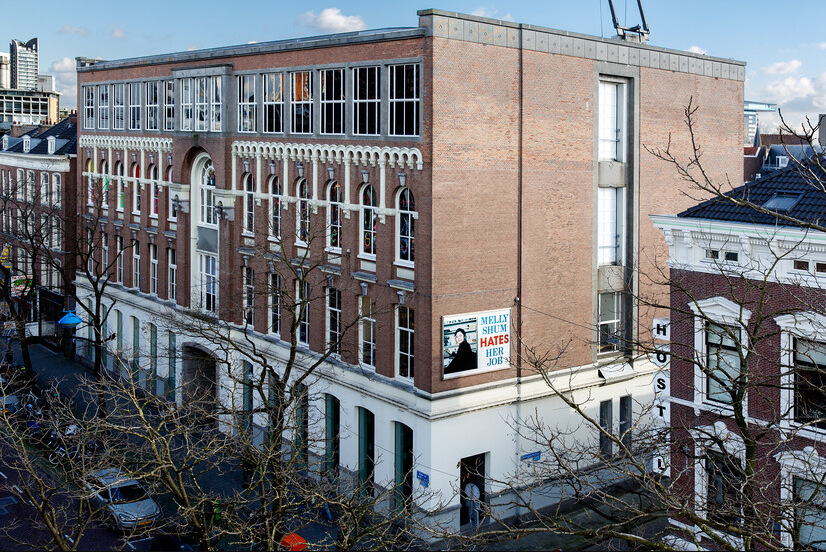
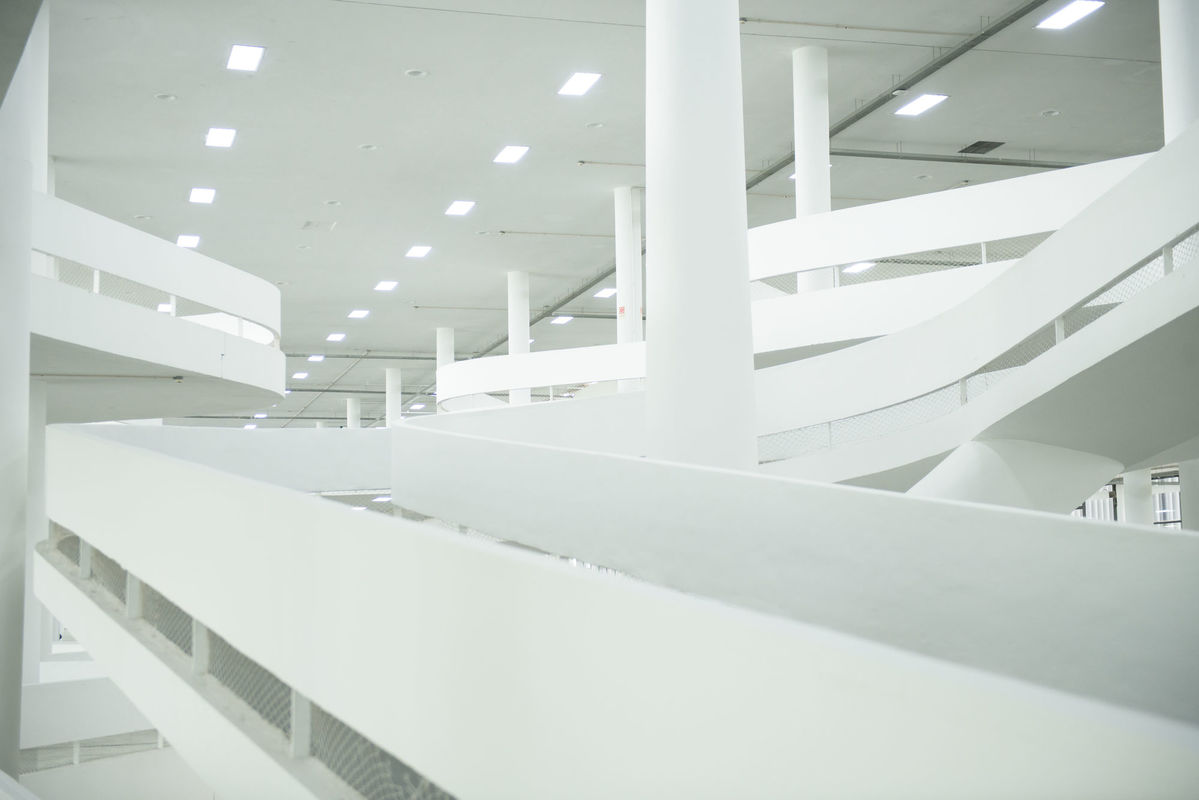
![View of the sculpture of the series Corte Seco [Dry cut] (2021), by Paulo Nazareth during the 34th Bienal de São Paulo. Commissioned by Fundação Bienal de São Paulo for the 34th Bienal de São Paulo](http://imgs.fbsp.org.br/files/81b3a05327e8559c64fc5cda09f3e1f8.jpg)
